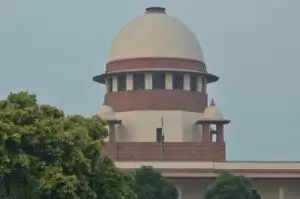New Delhi: The Supreme Court has decided to investigate whether a law that prohibits married couples with secondary infertility from pursuing surrogacy for a second child constitutes an infringement on citizens' reproductive rights.
According to the current law, couples who already have a biological child, an adopted child, or a child through previous surrogacy cannot opt for surrogacy again for a second child.
However, exceptions exist if the existing child has a severe mental or physical disability, a life-threatening condition, or a terminal illness without a permanent cure. In such cases, couples can seek surrogacy after obtaining a medical certificate from a district medical board and receiving approval from the relevant authority.
During the proceedings, Justices BV Nagarathna and R Mahadevan acknowledged the arguments presented by a lawyer representing a couple dealing with secondary infertility.
Justice Nagarathna remarked that the imposed restrictions might be justified given the country's increasing population.
The lawyer contended that the government should not interfere in the personal lives and reproductive decisions of individuals.
She emphasized that the term 'infertility' in relation to surrogacy, as defined in both the Assisted Reproductive Technologies Act and the Surrogacy Act, should not be limited to primary infertility.
You may also like

'They'll tear each other's hair out': PM claims feud brewing between Cong, RJD; reiterating 'jungleraj' jibe

ED raids six locations in J-K in narco-terror funding case; ex-minister's house among those searched

Martin Kemp rumoured for I'm A Celebrity as he pulls out of appearance at last minute

Delay in South Korea-US summit fact sheet suggests prolonged coordination on Washington's end

India's solar module manufacturing capacity set to touch 165 GW by March 2027







